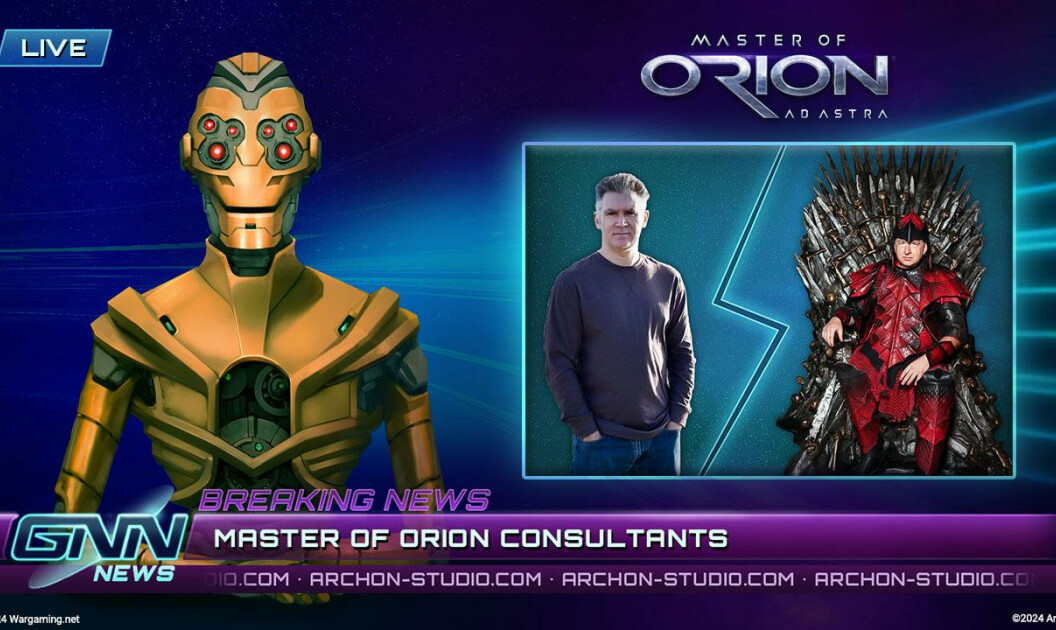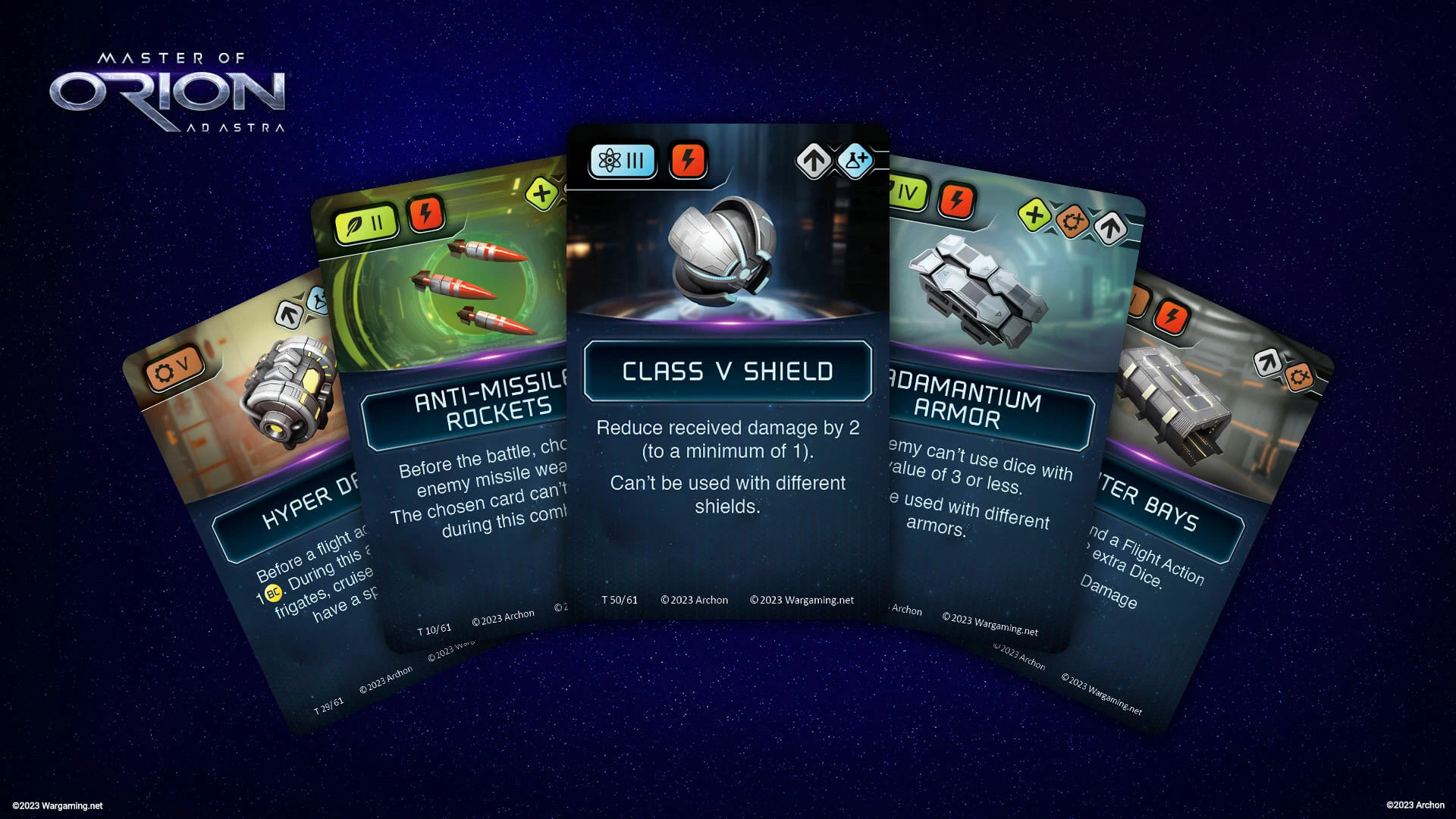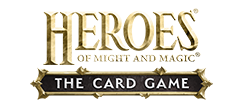- Brands
-
Shop
-
Dungeons & Lasers
-
Rampart
-
Masters of The Universe: Battleground
-
Masters of The Universe: Fields of Eternia
-
Heroes of Might & Magic III: The Board Game
-
World of Tanks: The Card Game
-
StarCraft Tabletop Miniatures Game
-
Trench Crusade
-
Starfinder
-
- Newest
- Bestsellers
- Pre-orders
Master of Orion Consultants - part II
Posted on Thursday,
04.04.2024
By Jakub S. Olekszyk
Selected language
EN
- DE
- ES
- PL

Alex: And what about your general strategy in these kinds of games? Are you more of a militaristic strategist, conquering galaxies with your fleets? Or do you prefer to dominate the game on the economic battlefield?
Lee: I really enjoy working the diplomatic angle in these games, forging alliances and going to war against common enemies. I also enjoy the utilizing spies and manipulating other species behind the scenes to achieve my goals. My MOO games usually end with me winning the galactic vote count, not because I wiped out everyone else!
Jason: I definitely like getting smarter than everyone faster, and then once I have a tech advantage, time to bring out the highly advanced fleet.
Michael: I start the early game without a real strategy other then get the first four techs, establish two colonies and have ships blocking my initial border. By turn 40-50 I start to see a road map based on planets available, what races are around me, etc. That then determines my initial strategy. Even then one must be able to pivot quickly if that strategy is not working.
Michael, it seems like you still play the computer version often.
Michael: I recently played Silicoid on an Exterminate campaign. The Mrrshan, Gnolam, and Trilarians all fell to me. Then the Meklar hit me and I discovered they had a strength three times my size with better tech. I traded land for time sacrificing a lot of frigates to slow their fleets down. I pivoted to economic victory to win on turn 499 of 500!
I hope that was interesting to our readers. If we're already discussing how you all do things differently, can I ask you about your approach to your work? For example, could you share with us where you typically draw inspiration for your works?
Jason: I think there are two things. My own designs are based on historical conflicts. So I am constantly reading history and being inspired by things I didn't know and events that suggest themselves as a good setting for a game.
But also as a game designer, I think it's important to play as many different games and different styles of games as possible. I take inspiration from every corner of the gaming hobby: computer games, euro games, roleplaying, and of course the work that's being done by my peers in conflict simulations. You never know when a different mechanism is going to be a good fit for something you are trying to simulate.
I think it's also important to stay abreast of the state of the art.
Michael: I am a researcher by training. Once a rough idea is given to me I begin researching the topic. I have access to some very large technical databases. With three decades research experience, I am fairly quick at finding data. Then typically I condense what is found, annotate it, and produce a white paper. If then requested I can dig deeper on a subject presenting a targeted paper.
As an example, I worked once on a near-future armored combat game. One paper was on current advances to armor projected out 50 years. At the end of each section, I would then add in my take on how to implement that in the game to include the visual look. So my inspiration is rooted in a solid foundation of information. I let others come up with the "cool factor" in games.
Lee: As a writer, my inspiration has always come primarily from video games. I was a teenager during the booming years of Microprose when games like Master of Orion and X-Com: UFO Defense were just coming out. I mean, without those games, I don't know that I ever set off to write books in the first place. I think a big part of that for me was because, those many years ago in the 1990s, games didn't always come packed with backstories, so you had to supply your own. When I'd play something like X-Com, I'd make stories for all the soldiers in my head. And with MOO, I'd really take on the role of the particular leader of the race I was playing, almost like I was method-acting while playing the game. Those games would be on my Mount Rushmore of inspirational games. They allowed me to flex my creative muscles like I never had before.
That was very insightful. Could you all elaborate on your work process concerning the games?

Lee: So it's a bit different for me, primarily being a novelist. When I'm setting the stage to sit down and type, I really do have to take some time to get myself in the right mood for what I'm about to try and convey. I'll listen to music and sort of zone out in my head until I'm at that place where I'm able to write exactly what I feel. Sometimes I'll even sort of act out scenes by myself before I write them. There's definitely a "method writing" style that I favor in that regard!
Michael: For MOO the work process was dictated by the devs and project directors. The first thing my team was tasked with was to research and write the internal race bible. The design team needed an updated blueprint to base MOO 4 off of yet retaining the core of the original games.
My lead writer, Kelsey Howard (now at Mojang), did in depth look of all races, NPCs, and lore. It was a lot of research by the team into some odd MOO fan fiction, into the mating habits of birds and reptiles, going though PhD dissertations of theoretical physics and just brainstorming sessions. In the end each race had sections on family ties, birth/death, military, diplomatic, economic, major cities, customs, racial quirks, etc.
Jason: I try to find THE book on a subject. The book that everyone refers to as the most important work. I start by reading that. Then I come up with the dimensions of my design. How long will this be? How many players? Will it have a board? Will it have cards, if so how many? I let those parameters help drive design decisions. Then I will begin mocking things up, and find more things to read to fill in the gaps in my knowledge or provide more context for elements of the conflict I realize I don't fully understand.
Has the work or industry changed from how it was when you were starting?
Michael: The technology keeps getting better for one. When I first came to Wargaming we received some of the first VR/AR goggles to test while being very expensive. Now of course they are readily available while being light years better in quality. The same with graphics, back-end coding, and so on- the gaming experience just gets better, smoother, and more "real" every year.
Technology is advancing in every field.
Jason: Yes. We are fortunate to have online tools for playtesting, and almost instant prototyping, and all of this stuff used to be an arts and craft project and done in person. It's still a hassle, but it is so much easier than it once was.
Lee: Again, this will be a little bit different for me, coming at it from a writing perspective. But the answer is yes, absolutely. Though it's easier than ever to publish a book, it also means there's so much more competition you have to try and separate yourself from. It would be much more difficult for a new author to be found today, I think.
For the last question, do you have any advice for anyone planning to pursue a career similar to yours or to develop their own games?
Michael: I have had quite a few people come to me and say "I want to get into video games! I love video games! I am really good at
My advice is always to go get an education, especially at any college that offers degrees specializing in video games. Before college though one can learn how to develop a video game with the resources available on the net. Go and design a game even if it is just played between friends, and get the experience for a resume whether for school or a job.
Also never forget the industry needs more than artists, devs, and coders. They need writers, HR, marketing, and finance people. There are lots of roads into the industry. Follow your passion.
Jason: I kind of believe the old writers' advice—write what you know. I think something similar is true about game design. Design what you know and that passion and insight will come out. But in addition, its so very important to make that first step of the crummy prototype. Games can sit in your brain for years and years. Nothing really moves a project along like a mock-up. And the crudest possible components will do. But get your design out of your head and into reality.
Lee: Take pride in your work. Accept criticism. Be nice to play with, proverbially speaking. Whatever ego you have, leave it at the door when you work with other people. Working hard and being kind can take you farther than anything else.
Thank you for your answers and time.









.jpg/408_268_crop.jpg?ts=1766132038&pn=blog-thumb)


